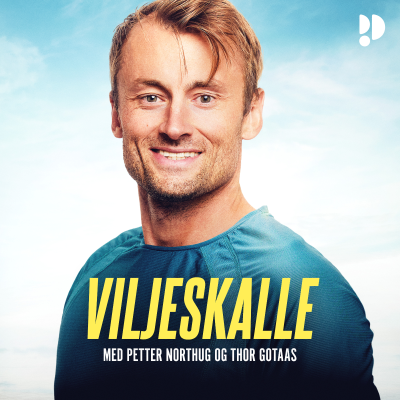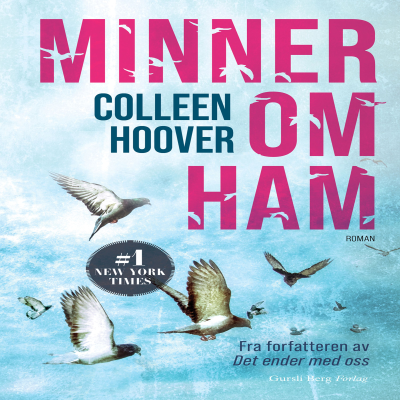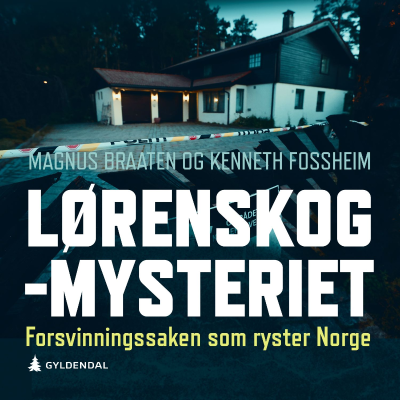
More or Less
engelsk
Nyheter og politikk
Prøv gratis i 14 dager
99 kr / Måned etter prøveperioden.Avslutt når som helst.
- 20 timer lydbøker i måneden
- Eksklusive podkaster
- Gratis podkaster
Les mer More or Less
Tim Harford explains - and sometimes debunks - the numbers and statistics used in political debate, the news and everyday life
Alle episoder
1085 EpisoderIs this Premier League striker a secret maths genius?
Chelsea striker Liam Delap has recently stunned fans on Instagram by apparently doing incredibly complicated calculations in his head, finding what’s known as the cube root of some very large numbers. But is he really a human calculator? Or is there something else going on? Tim Harford speaks to Rob Eastaway, mathematician and author of ‘Maths on the Back of an Envelope’ to learn about the trick you can use to pull this off - and while he’s here we also ask him about the trend of more goals being scored in the Premier League. Presenter: Tim Harford Producers: Nathan Gower Series Producer: Tom Colls Editor: Richard Vadon Programme Coordinator: Brenda Brown Sound Engineer: James Beard Credit: Video of Liam Delap from Chelsea’s Instagram account, chelseafc
Could Europe use its financial muscle to strong-arm the US?
Could European Nato members use their large holdings of US shares and bonds to put pressure on America? It’s a question that some in Europe found themselves asking as the geopolitical crisis over Greenland escalated and leaders desperately tried to think of ways to dissuade Donald Trump. It is true that trillions of dollars of American financial assets are held in Europe. But the devil, as ever, is in the detail. Tim Harford talks to Toby Nangle, a journalist with the Financial Times, to drill down into the numbers. Presenter: Tim Harford Producer: Nathan Gower Series Producer: Tom Colls Editor: Richard Vadon Programme Coordinator: Brenda Brown Sound Engineer: James Beard
Can you get £71,000 on benefits?
Tim Harford investigates some of the numbers in the news. This week: Is it true that someone needs to earn £71,000 before they receive more money than a family on benefits? Did Canadian prime minister Mark Carney get the GDP of Canada and the Nordic countries wrong? Are 1990s pop icons Right Said Fred right about what they said about church attacks? Is a sauna really ten times as hot as Wales in the winter? And Tim hits the science lab treadmill to find out if he can run a four-hour marathon. If you’ve seen a number in the news you want the team on More or Less to have a look at, email moreorless@bbc.co.uk Contributors: Gareth Morgan, benefits expert and author of the Benefits in the Future blog Joe Shalam, policy director of the Centre for Social Justice Professor Kelly Morrison, head of physics at Loughborough University Dr Danny Muniz, a senior lecturer in Exercise Physiology at the University of Hertfordshire Credits: Presenter: Tim Harford Reporters: Nathan Gower, Lizzy McNeill and Tom Colls Production co-ordinator: Brenda Brown Sound mix: Gareth Jones and James Beard Editor: Richard Vadon
Is Greenland as big as Africa?
The vast island of Greenland has found itself at the centre of a geopolitical crisis. But a little bit of geography can help us see the situation in a new light. YouTuber and map expert Jay Foreman explains how Mercator maps - the maps that the vast majority of us use to understand the world - contain necessary but massive distortions and hugely exaggerate the size of the Arctic island. So, why is making a flat map of a round globe so difficult? Why did we end up with a problematic map in the first place? And are there any alternatives? Presenter: Tim Harford Producer: Nathan Gower Series Producer: Tom Colls Editor: Richard Vadon Programme Coordinator: Brenda Brown Sound Engineer: James Beard
How close is Greenland to the United States?
Tim Harford investigates some of the numbers in the news. This week: How far away is Greenland from the United States? We check a number From Our Own Correspondent. Does converting our entire energy system to be carbon neutral come with a £7.6 trillion price tag? Is the inevitable rise of house prices in the UK not so inevitable after all? Can the great mathematicians of history answer the question of the hour: how to play The Traitors? If you’ve seen a number in the news you want the team on More or Less to have a look at, email moreorless@bbc.co.uk Contributors: Jay Foreman, one half of YouTube duo the Map Men Mike Thompson, chief economist of the National Energy System Operator David Turver, author of The Cost of Net Zero, a report from the Institute of Economic Affairs Neal Hudson, housing market analyst and founder housing research website BuiltPlace Dr Kat Phillips, mathematician and Innovation research associate at the University of Warwick, Traitors aficionado Credits: Presenter: Tim Harford Reporter: Tom Colls Producers: Nathan Gower and Lizzy McNeill Production co-ordinator: Brenda Brown Sound mix: James Beard Editor: Richard Vadon
Velg abonnementet ditt
Premium
20 timer lydbøker
Eksklusive podkaster
Gratis podkaster
Avslutt når som helst
Prøv gratis i 14 dager
Deretter 99 kr / måned
Premium Plus
100 timer lydbøker
Eksklusive podkaster
Gratis podkaster
Avslutt når som helst
Prøv gratis i 14 dager
Deretter 169 kr / måned
Prøv gratis i 14 dager. 99 kr / Måned etter prøveperioden. Avslutt når som helst.















































